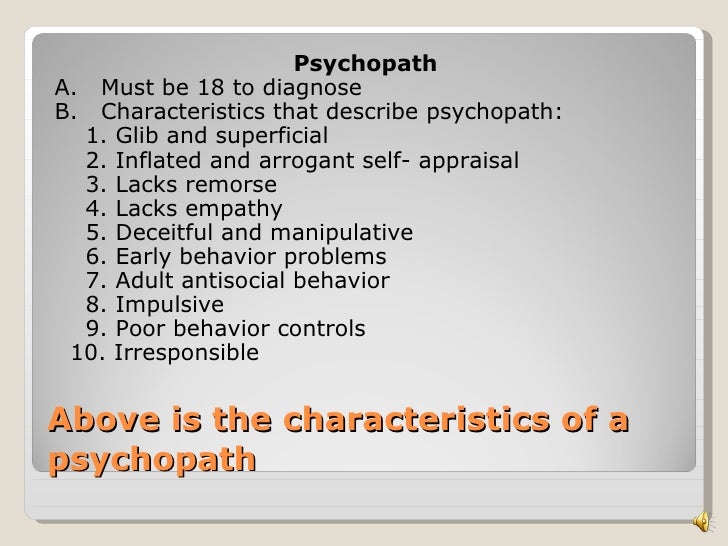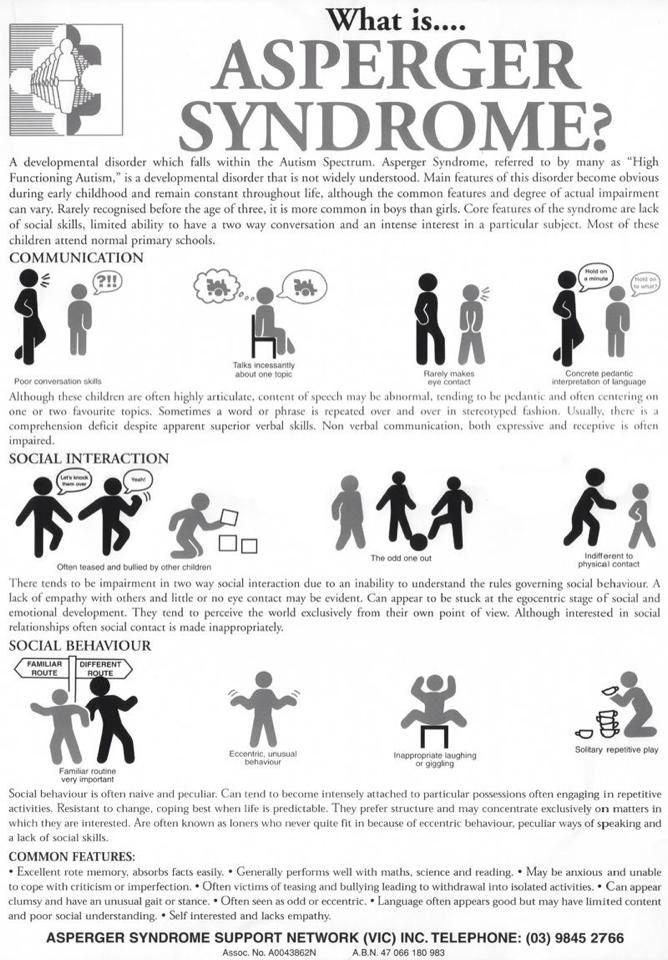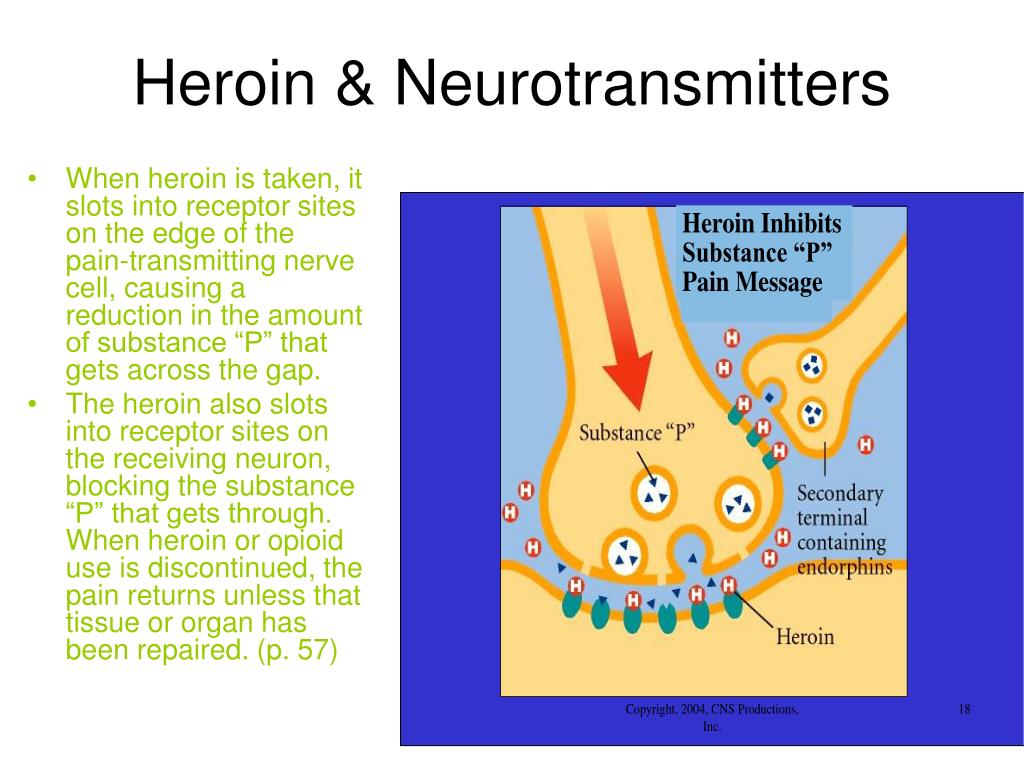Change your thought
How To Retrain Your Brain: Changing Negative Thinking Patterns
Does the lens through which you view the world lay the groundwork for an optimistic or pessimistic attitude? Thinking patterns can be habitual, but with a little awareness and some time, you can replace negative thoughts with more positive ones.
Both your biology and environment help to answer these questions. The nature versus nurture dichotomy has been debated for centuries but many believe the two to be intricately interwoven. In other words, you are influenced by your genetic makeup as well as your environment surroundings.
The good news is you don’t have to feel victim to either one. You do have a say over which thoughts to pay attention to. It may not always feel like this is the case since your thinking patterns become so habitual, but with a little awareness and some time, you can replace negative thoughts with more positive ones.
Common Thinking Patterns
Negative thinking patterns can create unnecessary stress and anxiety and pave the way for a bleak outlook on life. In his book, Feeling Good: The New Mood Therapy, Dr. David Burns outlines common negative thinking patterns, or cognitive distortions, such as:
- All-or-Nothing Thinking: Thinking in terms of black or white, or in extremes. You either act in a way that you label as “perfect” or as a “failure.”I can’t believe I ate a handful of potato chips. I’ve completely failed at my diet. I’m a complete and utter failure. I may as well eat the entire bag now.
- Overgeneralization: Inaccurately concluding that one unpleasant experience will lead to a negative future filled with many more of them. I really thought I had that job. Now I’ll never land one and will be unemployed forever.
- Magnification (or Catastrophizing): Exaggerating negative details of an event and overemphasizing your own imperfections and fears, making things into a much bigger deal than they actually are.I fumbled over my words in front of all those people.
 They must think I am the dumbest person on the planet. My boss is surely going to fire me over this. Then what will I do?
They must think I am the dumbest person on the planet. My boss is surely going to fire me over this. Then what will I do? - Emotional Reasoning: Believing that how you feel accurately represents the truth of your reality.I have felt so anxious and stressed out lately, which must mean my problems are pretty major and near impossible to overcome.
- Should Statements: Using “should” statements to motivate behavior when they ultimately leave you feeling pressured and frustrated.I should work out after eating that pizza. I should return all of those work emails. I should eat super healthy for the rest of the month.
In a Psychology Today, Dr. Melanie Greenberg discusses two more common thinking patterns:
- Negative Rumination: Continuously focusing on negative outcomes, leading to feelings of being stuck, anxious, and even depressed.
- Overthinking: Trying to think of and plan for every possible scenario, essentially attempting to control that which is out of your control, in an effort to avoid pain or failure.

How do you get yourself out of these negative thinking patterns and replace them with more useful thoughts? Here are five tips.
1. Practice Mindfulness
In order to adopt more positive thinking patterns, you must first become aware of your current ways of thinking. By cultivating mindfulness, you can acknowledge and identify the thinking patterns that have become habitual, then decide whether or not to engage them. Mindfulness creates a distance between yourself and your thoughts, allowing you to view yourself as separate from them.
Incorporate mindfulness into your morning or evening routine, sitting quietly for a few minutes (and gradually longer with practice). When a thought arises, instead of attaching yourself to it, simply redirect focus to your breath.
2. Address Your Inner Critic
Your inner critic loves convincing you of things that simply aren’t true, often making you feel pretty lousy about yourself. Think of this voice as someone separate from you. Challenge the lies it tries to feed you. Ask yourself: Is that really true? Is there evidence to back up that claim?
Challenge the lies it tries to feed you. Ask yourself: Is that really true? Is there evidence to back up that claim?
Another technique is to thank that inner voice for its input but to then simply say: No, thanks. I choose not to engage in those negative thoughts. Or you may prefer a shorter, more blunt response such as: Not now or Delete.
3. Know Your Triggers
Certain people, situations, and circumstances may set into motion more negative thoughts so it’s important to be aware of them. Perhaps encounters with your boss or making important life decisions causes you to become overly critical of yourself or to question your self-worth. When you’re aware of your triggers, you can prepare yourself and feel more in control of your thoughts versus falling back into old negative thinking patterns.
It’s also helpful to identify which cognitive distortions, such as the ones mentioned above, you tend to repeat the most.
4. Write it Out
Putting feelings down onto paper is a great way to not only unload your thoughts but to learn more about them. Often you aren’t aware of how negative your thoughts are. Negative thinking patterns become habitual over time, typically without your even noticing. By writing them down, you can more easily identify the areas that require your attention. You can also interrogate them once they are out on paper, to see if they are accurate, or have any bearing. If not, let them go or replace them with more positive thinking.
Often you aren’t aware of how negative your thoughts are. Negative thinking patterns become habitual over time, typically without your even noticing. By writing them down, you can more easily identify the areas that require your attention. You can also interrogate them once they are out on paper, to see if they are accurate, or have any bearing. If not, let them go or replace them with more positive thinking.
Journaling in the morning, first thing after you wake up, is the ideal time to transfer your stream of consciousness onto paper.
5. Recite a Mantra
Reciting a mantra or positive affirmation is a great way to pull yourself out from under the negative thoughts and into the present moment. It can be recited when you feel negativity creeping in or multiple times throughout the day in order to get into the habit of focusing on them.
You can choose any word or phrase that will help bring you into the present and remind you to focus more on the positive. Below are a few suggestions:
- I choose peace
- I am enough
- It is enough to do my best
6.
 Change Your Surroundings
Change Your SurroundingsSometimes your thoughts can seem so loud that the best thing to do is to change your physical surroundings. Take a walk in nature, go for a run, or meet up with a friend. The point is to engage in something other than the negative cycle so that you can come back to the problem when you’re in a clearer headspace.
Choose an activity or location that you find enjoyable and you know will leave you feeling better. If you need the company of others, be sure to surround yourself with people who will encourage your positive thinking. (Steer clear of triggers!)
Negative thinking patterns, particularly when they’ve become habitual, can be hard to break. Patterns that have been in place for years won’t be undone overnight so it’s essential to be compassionate and patient with yourself as you work through them.
Find inner peace 24/7. Download the Chopra App for personalized well-being guidance you can access whenever you need it.
15 Powerful Ways to Change Your Thoughts and Transform Your Life
“Change your thoughts and you change your world.” ~ Norman Vincent Peale
The nature of our thoughts determines the quality of our life whether it is sad, happy and contented. Happy, optimistic, positive thoughts, emotions, and feelings generate a zing in our system which makes the blood flow freely and heartbeat joyously.
They create a spring in our feet and spur us to action. Let us remember the age-old saying that the mind- thoughts- can move the mountains. Pessimistic, sad and gloomy thoughts, on the other hand, create inertia and force us to stay bed-bound.
Change Your Thoughts, Change Your LifeOur actions are the practical manifestations of our thoughts, so what happens when you change your thoughts?
It is quite clear, therefore, that we must bring about a change in the way we think in order to create happiness and a sense of fulfillment in our life. A good thing about our brain is that it willingly adopts any changes that we bring about in our thinking patterns.
A good thing about our brain is that it willingly adopts any changes that we bring about in our thinking patterns.
Here is a list of 15 ways you can change your thoughts and give a positive direction to your life.
1. Change your thoughts by creating positive affirmationsAffirmations are not always positive. They can be negative as well. The hexes created by the witches are negative affirmations.
The truth is that most people are given to making negative affirmations. When you think repeatedly that you are not going to succeed in a particular project, it is a negative affirmation. Affirmations, both negative and positive impact the neurological functioning of the brain.
Positive affirmations are like mantras. They have a sacred and spiritual force about them. Let us be clear about creating positive affirmations. They should not be normative or weak.
Thoughts such as I ‘should’, ‘ought to’ or’ abstain from’ are normative.
Examples of negative affirmations are: ‘I can’t’ do this. It is ‘quite difficult’. On the hand affirmations should be forceful and determined such as ‘I can’, ‘I will’, or ‘I am going to’. As mentioned above, your brain is always adapting to your thought patterns and directs your organs to act accordingly.
It is ‘quite difficult’. On the hand affirmations should be forceful and determined such as ‘I can’, ‘I will’, or ‘I am going to’. As mentioned above, your brain is always adapting to your thought patterns and directs your organs to act accordingly.
We keep mulling over our misfortunes, the perceived wrongs committed to us by those who we have loved and stood by so sincerely. We never stop cursing ourselves for the mistakes that we think we have committed. What would have happened if I had done this or that? What would happen if I do this or that in the future?
This is not to suggest we should not learn from our past mistakes or plan our future intelligently. The only thing is we should stop thinking over and over once we have learned from our past and decided about our future.
3. Let go of the need to be masochisticQuite often we love to wallow in our misery. We enjoy creating self-punishing thoughts or being gloomy and pessimistic. Here is an example:
“If I start selling candles, the sun will stop setting,
If I start selling shrouds, people will stop dying.”
I was born unlucky. Nothing good will ever occur to me.
Such thoughts not only cause a harmful impact on the mind, but they adversely affect your physical health as well.
4. Change your thoughts by counting your joys and blessingsMost people take their joys and blessings for granted and start grumbling about what they do not have; or, when they are faced with problems and troubles. Just think of those who are less fortunate than you. Or, think of a situation that could have been worse than it is now. You are crying because have hurt your knee in an accident. What, if the leg itself had broken? See the filled half of the glass for satisfaction and the empty half with a resolve to fill it.
“Gratitude unlocks the fullness of life. It turns what we have into enough, and more. It turns denial into acceptance, chaos to order, confusion to clarity. It can turn a meal into a feast, a house into a home, a stranger into a friend.” ~ Melody Beattie
A great way to change your thoughts is to appreciate and enjoy what you already have. This is not to suggest that you should not aspire for a still better life. Enjoy whatever amount of success you have achieved instead of feeling sad about what you have not been able to achieve. There is nothing wrong with always fixing higher benchmarks or goals, but failure to reach them should not spoil your enjoyment of what you already have.
6. Change your thoughts by Savoring the joys of your achievements“If you realize that you have enough, you are truly rich.” ~ Lao Tzu
It is one thing to achieve your goal; it is another to enjoy it after you have achieved it. For example, you marry a woman of your dreams, but get bored with her soon thereafter and start looking for a new one. This is one of the most common causes of marital discords and breaks up.
7. Stand erect and hold your head high in trying circumstances“There are two things to aim at in life: first, to get what you want; and after that, to enjoy it. Only the wisest of mankind achieve the second.” ~ Logan Pearsall Smith
We often tend to feel demoralized in adverse conditions. We stop and feel low as if we are bending under their weight. This happens both literally and figuratively. You will, however, surely feel better if you try to lift your spirits and also your head like a person determined to take up the challenge. This is the best way to get out of depression. Try it.
8. Allow yourself to be playful and childlikeChildren are known for the innocence and simplicity of mind. They soon forget their quarrels with their friends and start playing together once again. This is the reason that generally they are always happy and smiling. Translated into the language of the adults, we should learn to forget and forgive.
9. Seek happiness and contentment in the present moment“The great man is he who does not lose his child’s-heart.” ~Mencius, Book IV
Do not associate happiness with future events. I will be happy when things happen this way. It is like postponing your happiness to an unsure future. The better alternative is to try to postpone your sorrow to some future moment as much as you can. The time to be happy is to-day because yesterday has already passed and you cannot be sure that tomorrow will bring any happiness.
10. Change your thoughts by being a master of your moods“How simple it is to see that we can only be happy now, and there will never be a time when it is not now.” ~ Gerald Jampolsky
Be a master rather than a servant of your own moods. You are the ruler of the kingdom of happiness. Do not allow other people or circumstances to make you happy or sad. Do not depend on material possessions to create happiness for you. It is for you to choose to be happy whatever the situation. Do not allow your heart to break up if your loved one has ditched you. If he/she can be happy without you so can you.
Do not allow other people or circumstances to make you happy or sad. Do not depend on material possessions to create happiness for you. It is for you to choose to be happy whatever the situation. Do not allow your heart to break up if your loved one has ditched you. If he/she can be happy without you so can you.
Resolve the first thing as you wake up in the morning to remain happy throughout the day. Spend some time with the flowers and plants in your garden. Listen to the songs of the birds in the trees or watch them flying high in the skies.
Or, go out for a walk in the park nearby. Remember your resolve to remain calm as soon as you sense trouble coming. You owe yourself an ethical duty to remain happy.
12. Your body is your temple, honor itKeep the temple of your body neat, clean and well-ventilated. Do not dump garbage of dirty, negative thoughts and toxic junk food in it. It is really difficult to remain happy when you are sick physically or mentally.
There is a close relationship between the mind and the body. Take physical exercises regularly according to your constitutional needs. Subscribe to some inspiring- thought- for- the- day service to motivate you to stay happy during the day.
13. Change your thoughts by meditating dailyMost yoga and meditation gurus have complicated the process of meditation by using incomprehensible jargon about its practice and goals. Consequently, most people tend to doze off during the meditation sessions and stop practicing meditation altogether.
Also, take stock of your day in the evening. Remember the little good things that happened. You were not held up in traffic snarls. Your car ran smoothly.
There was no problem with your boss and colleagues. You had a delicious lunch or coffee. Thank your stars for a nice and happy day. This will fill you with gratitude and make you a happier person.
14. Focus on changing yourself instead of changing the world around you“During meditation, your metabolism and your breath rate go down to a level of rest, twice that of deep sleep.” ~ Mike Love
It is impossible to change the world around you. So stop fretting when people do not come up to your expectations. The best course is to change yourself or at least adjust with the people or situations you do not like.
15. Change your thoughts by making the best of what you have“Never underestimate your power to change yourself; never overestimate your power to change others.” ~ Wayne Dyer
It is always better to make the best of what you have rather than pine for what you think is the best. A perfect state occurs only in Utopia and the world you live in is not that kind of ideal place.
Do not be worried about the imperfections. The word ‘imperfection’ is derived from ‘perfection’. Even the most imperfect situation has some small element of perfection in it.
Even the most imperfect situation has some small element of perfection in it.
There is nothing more powerful than your mind. You can make it work for you and help you transform your life — just give it time. To spare hours, days, or weeks if needed, feel free to delegate your academic paper assignments to essay writing services hiring professional writers who can deal with less critical tasks fast and quality, and leave you plenty of time for mindfulness practices and self-care.
You change your life by changing your thoughts. If the thoughts you think are pure, your life will be pure.
Do you believe that when you change your thoughts you can transform your life? What do you believe stands between you and complete happiness? Is it your thoughts or something or somebody else? I really want to know what are your thoughts on this. You can share your insights by joining the conversation in the comment section below
report this ad
Comments
loading. ..
..
- google+
Raj Rishi loves to contribute his humble mite for the betterment of the life of the people.
read moreHow to change your mindset and make your life better
September 18, 2021 Motivation
Love failure, stop being a hostage of situations and believe: everyone can win.
You can listen to this article. If it's convenient for you, turn on the podcast:
Often the obstacles that prevent us from achieving our goals or becoming better are only in our head. Consciousness determines how we behave in difficult situations, whether we cope with fear, succeed or fail. Therefore, it needs to be changed. nine0003
How to think positively
Negative thinking prevents us from reaching our goals. Every opportunity is seen as a threat, as a harbinger of failure. Past failures do not give rest, focusing on them does not allow moving forward. Everything was bad and will be bad.
Positive thinking works in reverse. Everything that gets in the way of the goal becomes another opportunity to achieve it. If for a negative thinker, failure is an obstacle that cannot be overcome, for a positive thinker it is an experience from which one can and should benefit. nine0003
A simple but illustrative example. A hole in your favorite jeans for one is a reason to throw denim in the trash. For another, it's an opportunity to try your hand at being a designer and turn old pants into a frayed fashion item.
So, first of all, you need to think positively.
1. Learn to have an internal dialogue
Say to yourself: “I can do better”, or “Next time I will do better”, or something similar. According to a recent study, this is an effective way to increase productivity and start putting more effort into solving a problem. nine0003
The main thing is to believe in what you say. After all, this is not magic, but hard work on oneself.
2. Turn negative thoughts into neutral ones
Don't torture yourself trying to make bad things good in a second. Go to it gradually.
3. Realize that your negative thoughts are just thoughts.
Often our experiences are unfounded. Think about whether yours have a real reason.
How to stop being afraid of failure
How many great projects have died at the idea stage because of someone's fear of failure in implementation? If every inventor was afraid to make mistakes and gave up the idea, you would hardly be reading this article from the screen of a smartphone or laptop, driving to work and enjoying other benefits of civilization. nine0003
1. Remember: failure means that you do not stand still
Those who do nothing do not make mistakes. If you fail, this is a sure sign that you are moving towards your goal.
2. Treat failure as an experience that helps you get better
Chances are you won't repeat the mistake again. You will discover your weaknesses and do it differently next time. What if it doesn't work again? So you will gain experience again. And so on until you get where you want to go. nine0003
Every failure is a valuable lesson.
Ask yourself:
- What have I learned from this situation?
- How can I benefit from it?
- What are the positive aspects of it?
You will see that everything can be useful.
3. Don't identify failure with yourself
Don't think you're a failure because you make mistakes or fail at something. You would be if you didn't learn from it and stop for fear that the situation would repeat itself. nine0003
4. Prepare for difficulties and decide how you will cope with them
Scientists have found that positive attitudes alone are not enough to cope with the negative.
Subjects were asked to imagine the next week. The first group had to think exclusively positively, and the second - as it sees fit. It turned out that people who saw a great future were then less energetic and did less than the rest.
The balance between positive thoughts and readiness to deal with difficulties is more effective than one optimistic attitude. nine0003
5. Focus not on the problem, but on its solution
Thinking about a problem takes up energy and time, which are better spent on solving it. Don't think about failure, try to prevent it. This will not only relieve you of unnecessary stress, but also help to identify weaknesses.
How to Develop a Growth Mindset
Fixed mindsets put themselves in a box. They are sure that it is impossible to change and develop talent in themselves, and when faced with difficulties, they experience a feeling of helplessness and hopelessness. nine0003
Growth mindsets believe that they can become better, strive to develop and learn new things. And all that they have is just the beginning, and they can achieve more. They just know how to see an opportunity in failure and perceive it as an experience that will be useful to achieve the goal.
1. Change the attitude towards failure
When you learn to accept failure as part of your path to success, this very path will become easier, and your chances of reaching the end will increase. nine0003
2. Prepare for difficulties
If you used to walk along a straight path along the field, now you have to climb to the top of the mountain. And it's not easy.
3. Focus on personal growth and development
Take an interest in things you don't know. Do more than before. Raise the bar, don't stop there. Stop accepting your knowledge and skills as something permanent that comes with you. Instead, imagine that you are a vessel that is only a third full, and there is much more to learn. nine0003
4. Be persistent and purposeful
If you give up, you will return to the beginning and again become a hostage to fixed thinking. Think about what work has already been done.
How to tune in to the abundance mindset
People with a scarcity mindset think there aren't enough resources for everyone. Stephen Covey draws an interesting analogy in Being, Not Seeming.
Stephen Covey draws an interesting analogy in Being, Not Seeming.
Stephen Covey
American business expert.
Scarcity thinkers are convinced that there is only one pie in the world and that if someone takes a piece, they will get less. This attitude leads to win/lose thinking: if you win, I lose, and I can't let that happen. nine0003
Abundant mindsets believe that there are many pies and no losers: everyone wins and gets a piece (or more than one).
1. Think about what you have
Concentrate on that. Material or non-material things - it does not matter. You need to learn to think abundantly and be grateful for what you have.
2. Share
Knowledge, for example. Or take part in a charity event. If you can share something, then you have it in abundance. nine0003
How to think proactively
Those who think reactively depend on external factors. They do not play an active role in life, but simply go with the flow.
People with proactive thinking do not blame the situation or others if something goes wrong, but take responsibility for their lives. They know what they can change and what they can't, and they focus on the former.
They know what they can change and what they can't, and they focus on the former.
1. Take Action
Get out of the passenger seat and take control of your life. Instead of saying "The weather is too bad to go for a run," say "It's raining outside, but it's dry at home. So I can do other exercises." nine0003
The point is to stop being a hostage to situations and act regardless of what is going on around you.
2. Get rid of reactive thinking phrases
Forget about:
- I can't because...
- If I could, I would.
- I had to...
- That's how things happened.
And try:
- I'll find an alternative.
- I can do it.
- This is my decision. nine0056
- I want it myself.
3. Take responsibility for your life
Don't waste your time and don't get angry when things don't go according to plan. Did the bus arrive on time? Get out early, take a book with you so as not to waste time, turn in your license and save up for a car, but do not become a victim of circumstances. Let them work for you.
Let them work for you.
No one promised that it would be easy and fast. But who, if not you, will help you become better and succeed? nine0003
Read also 🧐
- How to make the brain think positively
- 12 ways to change lives for those who have absolutely no strength
- 2 words that prevent you from changing your life for the better
5 exercises to change your life
68,676
Know YourselfPractices how toCareer and self-realization
Each of us at least once thought about how he lives. And after this inevitably comes the thought of how I would like to live. We can choose a lot: where to work, with whom to communicate, where to go, with whom to live, what to do in a particular situation. And every choice we make affects how our life will be. But choice is responsibility. Responsibility for your actions, feelings and thoughts. nine0003
In my psychotherapeutic practice I use a valuable rule: "Thoughts - Feelings - Actions". If you apply it in life, then creating each new day will be much easier. What is thought? These are unspoken words that are born in our mind. After the birth of a thought, it becomes possible to make a choice: which thought should be thrown out of the head, and which one should be left - negative or positive. It is from this choice that depends on what feelings we will experience further. Any thought continues in feelings. The negative thought “He didn’t call, so he doesn’t care about me” leads to negative feelings: “I’m scared, hurt, sad.” The continuation of these feelings is the action: "I will call him myself and express everything I think." nine0003
If you apply it in life, then creating each new day will be much easier. What is thought? These are unspoken words that are born in our mind. After the birth of a thought, it becomes possible to make a choice: which thought should be thrown out of the head, and which one should be left - negative or positive. It is from this choice that depends on what feelings we will experience further. Any thought continues in feelings. The negative thought “He didn’t call, so he doesn’t care about me” leads to negative feelings: “I’m scared, hurt, sad.” The continuation of these feelings is the action: "I will call him myself and express everything I think." nine0003
It is according to this algorithm that we shape our life in all spheres: in relations with others, in work, in relation to ourselves, to money, and health. Absolutely everything starts with a thought, and if we learn to make the right choice in the direction of positive thinking, we will very quickly notice how our life changes.
Step #1. We change statements. A colleague of mine once said: “In psychology, it is very important to ask competent questions to the client. The result depends on it. The question we ask will determine the answer.” I am convinced that we all need to learn how to ask competent questions to ourselves. If you learn to ask: “How do I feel now?”, “Do I feel good or bad?”, “Why am I feeling this way now?”, “What emotions are prevailing inside me right now?”, “I would like to feel better ?”, then you will get to know yourself better. nine0003
We change statements. A colleague of mine once said: “In psychology, it is very important to ask competent questions to the client. The result depends on it. The question we ask will determine the answer.” I am convinced that we all need to learn how to ask competent questions to ourselves. If you learn to ask: “How do I feel now?”, “Do I feel good or bad?”, “Why am I feeling this way now?”, “What emotions are prevailing inside me right now?”, “I would like to feel better ?”, then you will get to know yourself better. nine0003
The more we think about how terrible our life is, the worse it gets. The more we talk about difficulties, the more difficult it will be for us
It is important to remember that the power that helps us overcome any obstacles is within us. How we use power depends on our thoughts and statements. The power of thought controls actions. It's the only thing we can control. And choosing thoughts and statements, we choose a certain life.
Affirmations are attitudes that we have adopted from significant people in our childhood, adolescence, or adulthood. For example, a father from childhood claimed: “You are a bad girl, you behave badly and because of this they will not be friends with you.” As a result, the matured girl is convinced that in order to have friends, she must be “good” for everyone and try to please everyone. But she still has no friends - there are only those who use her. She is lonely and unhappy. Affirmations change the way we think. From what thoughts are formed in our mind to a greater extent, the life experience that we form for ourselves depends. nine0003
What do we do with negative statements that have taken root in our minds? They need to be changed, converted. How? Write down on a piece of paper all the negative statements about life and relationships that you have heard from significant people. Next to each negative statement, write a positive statement. For example: “Everyone in our family was a loser, and you will not achieve anything in life” is converted into a positive statement: “I am wise and quick-witted. I can do everything. My life is filled with success." It is important to say statements in the present tense, not in the future. Read all the positive statements you have written out loud every day for a week (or more) until you begin to truly believe in them. nine0003
I can do everything. My life is filled with success." It is important to say statements in the present tense, not in the future. Read all the positive statements you have written out loud every day for a week (or more) until you begin to truly believe in them. nine0003
Affirmations should be surrounded by positive thoughts. The more we think about how terrible our life is, the worse it gets. The more we talk about difficulties, the more difficult it will be for us. Change your thoughts, your approach, and the very life around you will change.
Step #2. We neutralize stress. Stress paralyzes us, prevents us from thinking positively, prevents us from feeling life and moving forward. Sometimes we justify our failures or laziness with this state. How to overcome this obstacle? You need to understand what stress really is:
- fear of change
- inability to determine life priorities
- shifting responsibility for the inability to control one's feelings to other people
- negative thoughts and wrong atmosphere in the current situation
Everyone knows that yoga helps to restore the harmony of body and soul. Everyone knows that with the help of breathing we can calm the nerves and put our thoughts in order. Breathing is the first physical action that helps with stress. Start breathing deeply, do it consciously, focus on each inhalation and exhalation. Imagine how air enters the lungs, how it exits. Such focusing helps to switch the mind from negative thoughts to neutral ones, and then concentrate on converting into positive thoughts. When the breath evens out and the head becomes free, ask yourself: “What am I afraid of, what scares me so much?” nine0003
Everyone knows that with the help of breathing we can calm the nerves and put our thoughts in order. Breathing is the first physical action that helps with stress. Start breathing deeply, do it consciously, focus on each inhalation and exhalation. Imagine how air enters the lungs, how it exits. Such focusing helps to switch the mind from negative thoughts to neutral ones, and then concentrate on converting into positive thoughts. When the breath evens out and the head becomes free, ask yourself: “What am I afraid of, what scares me so much?” nine0003
Stress is fear, and we need to find and speak its cause: “My strength is inside me, my world takes care of me, I have no fear, I am not afraid of anything, I create a harmonious, happy life.” Repeat these affirmations until you feel peace and joy. Do not accept the word "stress", do not justify internal and external tension with it. Remember that you are the master of your life, your thoughts, feelings and actions. And only in your power to accept stress or refuse it, in your power to feel sorry for yourself and fall into depression or refuse it and think positively. nine0003
nine0003
When positive thoughts appear in our minds, our level of self-satisfaction increases.
Learn to create thoughts that will make you happy. Happiness tends to attract love and kindness into life. There are a lot of affirmations that will help redirect thoughts in a stressful situation. You can come up with them yourself, based on a few examples: “I am free from all fears, there is no place for stress in my world”, “I am successful and fearless, every day I feel more secure”, “I am calm, I am balanced, I am filled with love and kindness”, “I have excellent relationships with friends, relatives, colleagues. I am loved and appreciated." nine0003
Step #3. We learn self-respect. You will never appreciate and respect yourself if you think badly of yourself. Very often we say to ourselves: “You are not like everyone else”, “You are good for nothing”, “You do not have the courage for this”, “You must . ..”. When positive thoughts appear in our minds, we increase our level of satisfaction with ourselves and our actions. Therefore, statements like “I’m great”, “I’m an interesting person”, “I accept myself as I am, with all my advantages and disadvantages”, “I don’t owe anything to anyone” help to “wake up” self-esteem. Self-esteem increases our self-confidence, and self-confidence contributes to the development of self-esteem. nine0003
..”. When positive thoughts appear in our minds, we increase our level of satisfaction with ourselves and our actions. Therefore, statements like “I’m great”, “I’m an interesting person”, “I accept myself as I am, with all my advantages and disadvantages”, “I don’t owe anything to anyone” help to “wake up” self-esteem. Self-esteem increases our self-confidence, and self-confidence contributes to the development of self-esteem. nine0003
There are several ways to work with self-respect. And these methods are very effective: they return to us the type of thinking that was characteristic of us in childhood, when we loved and accepted ourselves without conditions.
Write down on a piece of paper all the negative statements about yourself as a person that you have heard from significant people. Next to each negative statement, write a positive one. Say them as often as possible. Here are some universal positive affirmations that will boost your self-esteem: “I love myself. I am perfect”, “I feel good about myself. I am worthy of love”, “I accept myself for who I am, here and now”, “I have a developed sense of self-worth”, “My mind is filled with healthy, positive thoughts”, “I love myself without conditions”. nine0003
I am worthy of love”, “I accept myself for who I am, here and now”, “I have a developed sense of self-worth”, “My mind is filled with healthy, positive thoughts”, “I love myself without conditions”. nine0003
Step #4. We learn forgiveness. Can a person feel happy if he is full of bitterness, anger, resentment? Voluntarily agreeing to sit in the "well of resentment", we will never get out of the sad darkness. Sadness, anxiety, fear, pain, guilt, resentment, anger... if we can't part with these feelings, then we don't want to let them go. Moreover, it means that we are comfortable in a dark, resentful life. We ourselves suffer the most from this, and not the person who once offended us. Even if it happened recently, it is already in the past. Only the present can become the foundation for our future. nine0003
To forgive an offender does not mean to justify his misbehavior. Forgiveness is a conscious action. It frees us from negative energy. We have a choice: we can continue to live in resentment, or we can start a new happy life. No matter how serious the offense, no matter how severe the trauma, living in the past is not the best choice.
How to overcome the unwillingness or inability to forgive someone? Take a piece of paper and write: “I, (your name), forgive you, (name of the offender). I forgive you for the pain you caused me. I forgive you, (name of the offender), and free you and myself from this feeling. I forgive you. I forgive you. I forgive you". For 5 days, read this affirmation as often as possible until you feel peace and joy. nine0003
To be successful, you need to act. It's not a superpower, it's a decision that each of us can make
Step #5. Learn to attract success. For many people, success is a continuous movement towards something more, towards expanding the comfort zone, towards constant growth and understanding of relationships with oneself and the outside world. We make the mistake of saying to ourselves, “I know that successful people are gifted people who have superpowers that I don’t have.














